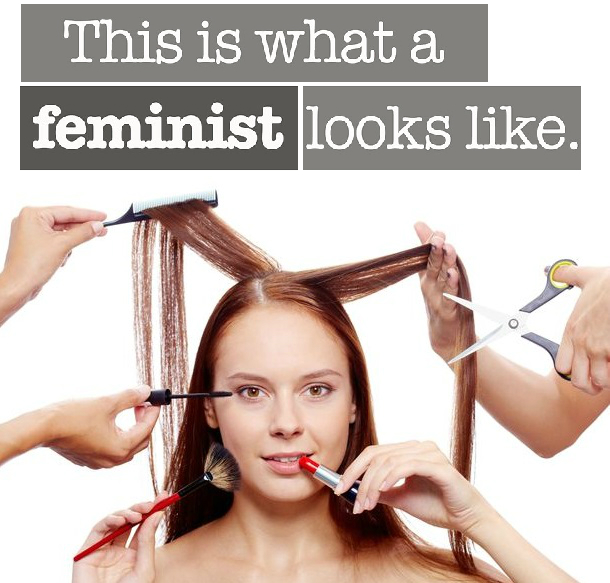My mother is a feminist. When I was younger, I could sense what that meant without being fully able to put it into words. I knew, for example, that it was ‘no big deal’ that she worked full-time (read: 60 hours a week!) as the director of a software company and that my stepfather was taking care of me and my sisters. Nor was it a ‘big deal’ that I was part of a family with an ‘alternative’ family structure, as my parents are divorced.


By the time I was a teenager, many of my mother’s ideas about the world had been passed on to me. I used to wear my hair very short despite former boyfriends begging me to grow it out. I felt empowered by not prescribing to the long hair norm. It was not until I started dating someone in Delhi that I became conscious of my hairstyle. He wanted me to meet his parents at some point, but was concerned about my ‘foreignness.’ I decided to start keeping my hair in a way which was more ‘familiar’ (or should I write ‘feminine’?) to his parents. I wanted to come across as a soft-spoken and pious woman, and not as the ‘out-of-control Western feminist type’ which many of my friends thought me to be. Upon meeting his parents, I wore clothes which fully covered my body and I kept my hair neatly tied into a braid. The strategy worked as a charm as they told me that “I was not like they had expected.” After a while, my new look started to grow on me.
My feminist mom, however, criticized my sudden modest dressing and longer hair. She knew I was conforming to the gendered expectations of the new cultural space that I had entered. She expected me to resist, rather than to conform. Yet her kind of resistance would not have led me to my immediate goal: being liked by the ‘parents-in-law.’
It was then that I understood that (western) feminism tends to locate agency solely in resistance. Resistance, more than romanticized, has become essentialized as the only road to liberation from patriarchy. Resistance itself is however highly situational and temporal in nature. What might work to empower a woman in one situation, might not work in the next. Keeping my hair short might have worked to empower me in the context of my home country, but in this new cultural space (where I desired to blend more than to stand out) it marginalized me.
Some women feel empowered by resisting conventional ideas about “beautiful hair”, while others feel empowered by being able to live up to the social norms. Doing femininity well is also power. Which strategy is more effective in overcoming the powers controlling female bodies, is the next debate we can engage in. Sometimes our norms about empowerment are even oppressive for another. We, for example, increasingly see restrictions on women in Western countries with regards to veiling. The logic here is that the hijab or the burka is oppressive to women, but in reality the restrictions on their choices in veiling are experienced as far more oppressive.
Essentially, we cannot prescribe how a feminist looks or which choices she ought to make in order to be qualified for being a feminist. There is simply no one-size-fits-all feminism. If feminism aims to empower women, it should be mindful to shy away from establishing norms about what “empowerment” ought to be. A great part of feminism is allowing other women to make choices that you would not necessarily make yourself. One the bright side, I can say that my mother’s feminism, despite sometimes being normative in nature, has always provided space for criticism. Essentially, it has always stimulated me to think for myself. So I am sure she and I will continue our little ‘hair-talks.’
Looking forward to reading your blogs, you can mail us your entries at WriteWithUs@csrindia.org, or upload them at Write With Us.
Donation for Centre for Social Research to Join our effort in rehabilitating Domestic Violence
Discuss this article on Facebook




